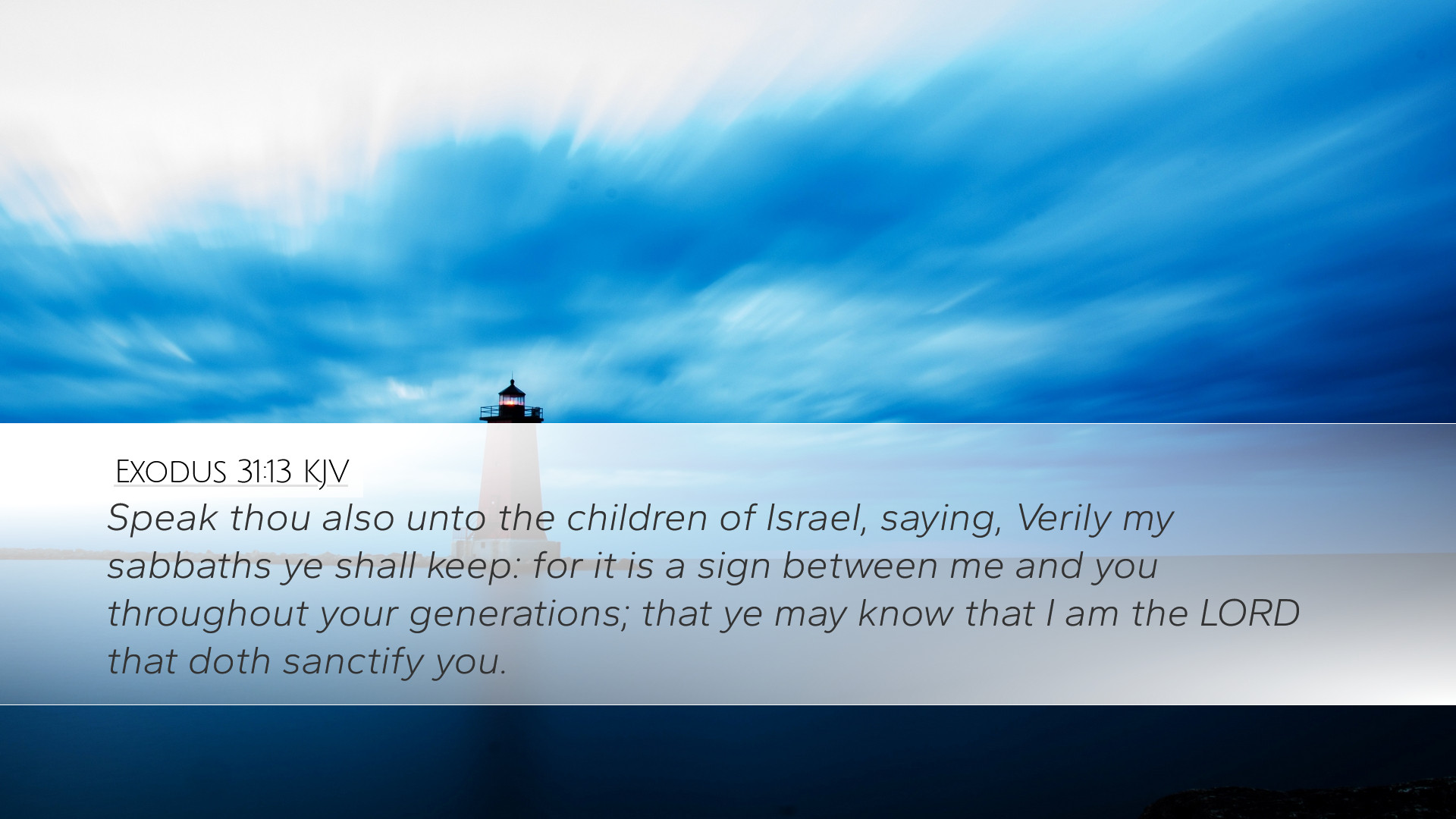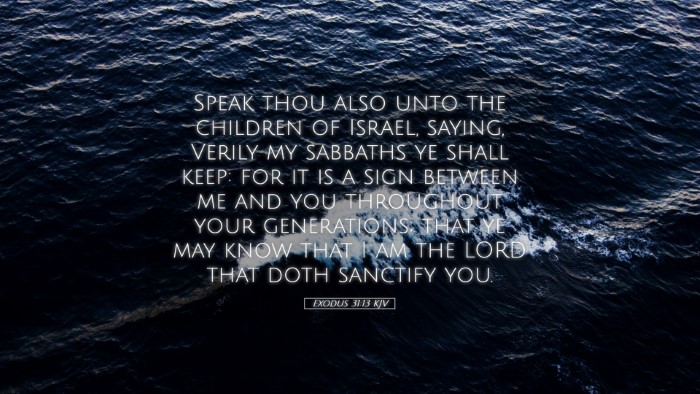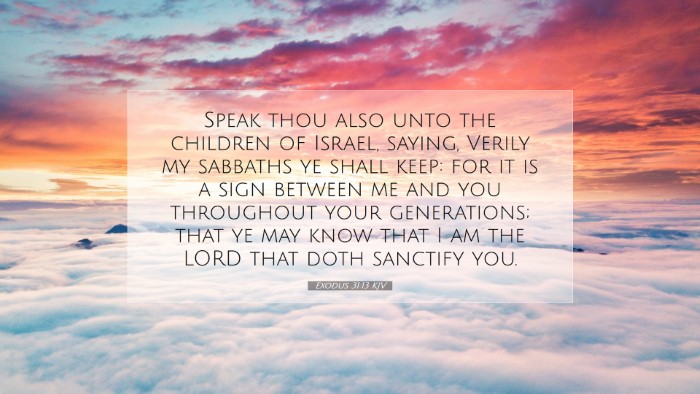Commentary on Exodus 31:13
Verse: "Speak thou also unto the children of Israel, saying, Verily my sabbaths ye shall keep: for it is a sign between me and you throughout your generations; that ye may know that I am the Lord that doth sanctify you."
Introduction to the Sabbath
The significance of the Sabbath is paramount in the lives of the Israelites as well as in the context of Christian theology. Exodus 31:13 emphasizes the observance of the Sabbath not merely as a law but as a sacred affirmation of the covenant between God and His people. Matthew Henry notes that God's command here specifies a continual observance, purposed to mark the holiness of Israel in a world of unholy practices.
The Covenant Sign
God’s intention for the Sabbath as a sign: This verse underscores the Sabbath as a sign. Albert Barnes elaborates on this, stating that the Sabbath signifies the special relationship between God and Israel and serves as a continual reminder of their sanctification by God. The practice is intended to highlight the distinction of the Israelites as God’s chosen people, which further signifies their divine purpose and dignity.
Theological Implications
Throughout the ages, theologians have interpreted the nature of the Sabbath in relation to God’s creation and redemptive work. Adam Clarke posits that the Sabbath represents rest and completion – a divine pause that mirrors God’s own rest post-creation (Genesis 2:2-3). This invites deeper reflection on rest being both a physical cessation from labor and a spiritual engagement with God.
Historical Context
The command to keep the Sabbath was revolutionary in ancient cultures characterized by relentless labor and servitude. As indicated by Matthew Henry, the Israelites’ observance of the Sabbath marked them distinctly, offering them a divine respite that would allow them to reflect on their identity and purpose in God’s plan.
Observance of the Sabbath
This command existed not merely as a day of repose but as a celebration of God’s provision and holiness. The following insights enhance the understanding of what it means to keep the Sabbath:
- Ceasing to Work: The observance mandates physical rest from labor, allowing individuals to reevaluate their commitments to God and family.
- Worship and Community: The Sabbath is also an opportunity for communal worship, fostering unity among the people of Israel.
- Reflection and Restoration: This day serves as a time for spiritual rejuvenation, inviting deeper prayer and reflection on God’s holy character.
Theological Reflection on Sanctification
The phrase "that ye may know that I am the Lord that doth sanctify you" introduces a profound theological aspect: sanctification. Here, God offers the Sabbath not only as a command but as a means of preparing His people for holiness. The connection between the observance of the Sabbath and the recognition of God’s sanctifying power is vital.
Sanctification in the New Covenant
For New Testament believers, the concept of the Sabbath transforms yet remains rooted in its original intention: a rest found in Christ. As stated by Albert Barnes, Christ fulfills the law, including the Sabbath, suggesting that true rest is found in Him (Matthew 11:28-30). The theological implications stretch beyond the ancient Israelites and inform Christian practice today.
Conclusion
Exodus 31:13 serves as both a reminder and a call to a deeper understanding of God's covenantal relationship with His people. The directives given here contain nuances of identity, purpose, and divine interaction that resonate throughout Scripture. As pastors and theologians study this text, they are reminded that the Sabbath is not simply a day in the calendar but a theological concept that invites all of God’s people into a rhythm of rest, worship, and deeper communion with the Lord.
Further Reflections
In light of this command, modern communities of faith are encouraged to explore how they are observing Sabbath in ways that glorify God and reaffirm their commitment to living as a set-apart people. The balance of work and rest, service and worship, reflects the heart of a community aligned with the rhythm of God’s creation and redemptive work. In this way, Exodus 31:13 serves as a cornerstone for understanding both the original audience and its relevance for us today.


